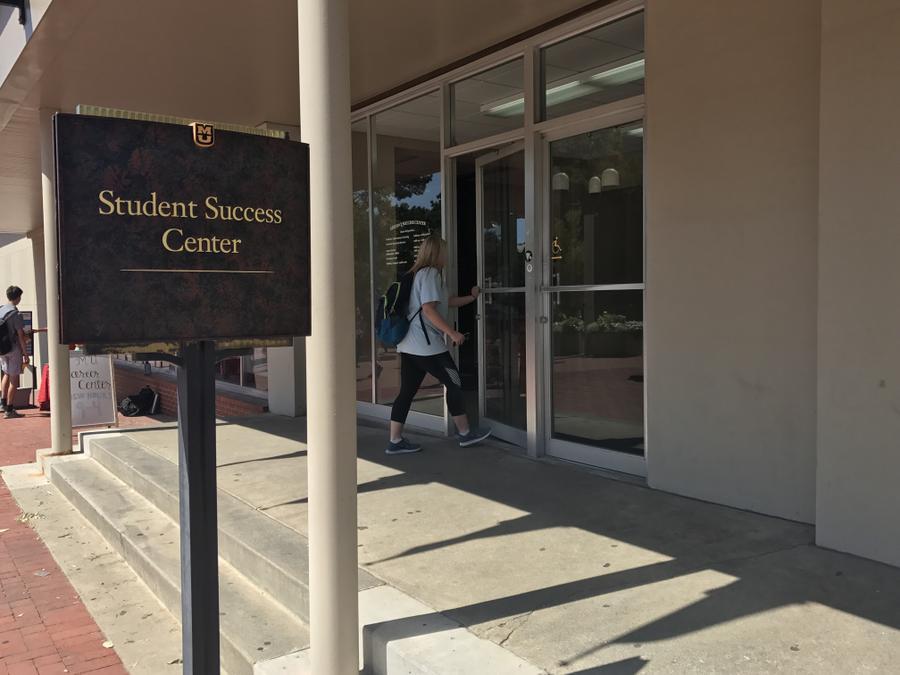
Welcome to week three of the 2017 fall semester! Whether you already feel as though you have been annihilated by a ton of bricks or you are slaying the student game, don’t underestimate critical study tips and resources. Consequently, the workload is here to stay, and by early planning, reinforcing and seeking the help you need, the semester will feel far more manageable, and maybe you will be inspired to organize your school life instead of your Netflix queue.
####Time management with a planner####
Effective weekly planning can help alleviate the panic felt when flipping through a semester’s syllabi. For some students, a minimalistic, month-by-month planner fulfills their needs. For others, a regimented, hour-by-hour one is fitting (The Mizzou Store offers a wide variety). Regardless of the planner type, it is imperative to make scheduling a priority. To start getting in the planner habit, set aside 30 minutes on the same day each week. Begin by boldly identifying quizzes, exams and paper due dates (excessive exclamation points suggested). Next, distinctly fill in additional organization meetings, sports practices, appointments, etc. (color-coding is your friend). Lastly, plug in assigned homework and readings by placing check mark boxes next to the assignment so you can tick off your progress.
####Show up for class####
“Go to class,” academic adviser Mackenzie Ewing said.
It seems like a no-brainer, but with the promise of more sleep and a newfound lack of attendance policy, it may be easy to get into the mindset that missing class is excusable behavior. If you value a stable GPA and potential letters of recommendation or on the off chance that you love to learn, give yourself the opportunity to succeed. Come to class prepared. Complete assigned readings before class. Put away your phone during lecture. Take handwritten notes. Ask questions. Attend discussions and study sessions. Then turn around and do it all again for your next class.
Perhaps you are the punctual, first-row student in every class but are still experiencing difficulty grasping foreign concepts. Well, say hello to the Student Success Center.
Ewing recommends the Study Plan Consultant program to all students, which helps students with time management, utilization of resources and tracking their grades.
It is easy to make the initial, hour-long appointment online through MU Connect by searching “Study Plan” or in person at the SSC front desk. Conveniently enough, the SSC front desk also has master schedules for when they hold help sessions. These sessions range from math and writing to foreign language and music theory. Drop in during the allotted dates and times to get free assistance for the subjects troubling you.
Senior journalism student and SSC ambassador Layne Silverman suggests the Career Center (in the basement of the SSC) to all students.
“The Career Center is an amazing resource,” Silverman said. “They help with resumes, internship and job searches. Get there as a freshman.”
Whether you are a freshman, senior or grad student, there is an expansive amount of MU student resources, and the earlier you use them, the better.
####Take handwritten notes … and yes, re-write them####
We have all already heard the advice — handwrite your class notes! [According to NPR](http://www.npr.org/2016/04/17/474525392/attention-students-put-your-laptops-away), studies show that laptop notetakers remember straightforward facts just as well as handwritten notetakers, but when it comes to applying concepts, laptop enthusiasts greatly underperform compared to their pen-preferring peers. While typists usually have increased quantity of their notes, hand writers get the opportunity to assess quality of their notes, which forces the brain to summarize and prioritize incoming information.
The single drawback when taking handwritten notes is that information can look disorganized. To avoid confusion and to reinforce concepts from lecture, rewrite and reconstruct your notes. Restructure notes by capitalizing chapter names, bolding headers, underlining definitions, color coding and starring pertinent points. The more organized your notes are, the easier you can simplify and conceptualize information. If you effectively re-write your notes, these notes can become study guides for future exams.
####Use your phone the right way####
Download MU- and study-related apps and turn on those notifications!
_Canvas:_ A fully functioning app version of the online Canvas site.
_GoMizzou:_ Includes a drop-down list of modules including campus events, a directory, maps, a myZou link (you can add or drop classes and view your schedule from this link), university news, athletics, a safety/crisis link and campus dining information.
_Outlook:_ Access your MU student email
_Quizlet:_ Create and find flashcards. This app will also help you memorize and create term tests for you.
_Calendar:_ The basic calendar on your phone may be more appealing than writing in a planner and can send notifications about upcoming quizzes, exams or events.
_Edited by Brooke Collier | [email protected]_